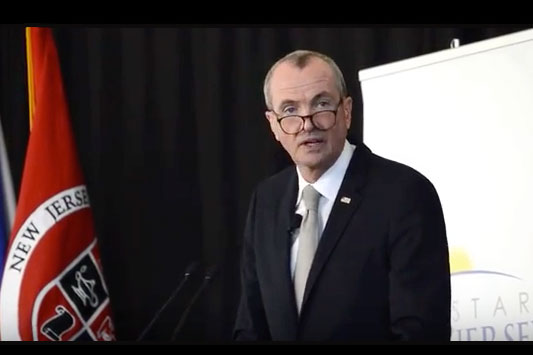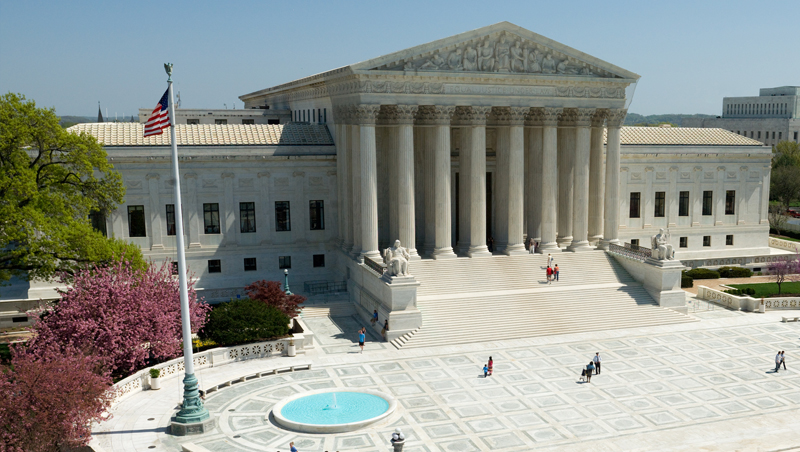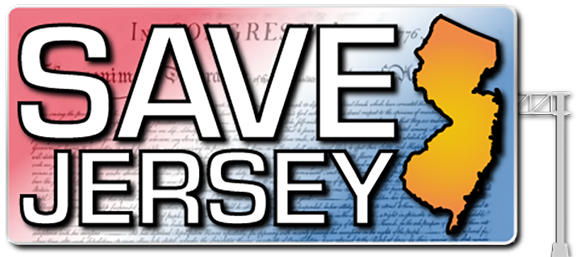
By Maureen Sullivan
_
New Jersey’s public-sector unions don’t have to wait to see how the U.S. Supreme Court rules on the Janus v. AFSCME case, in which an Illinois government employee argued for the freedom to stop paying union dues. They know there’s not much chance the majority of justices will go against the idea of an individual’s right to free association. So ahead of the decision, the legislature and Gov. Phil Murphy presented the government unions with a gift in the form of the Workplace Democracy Enhancement Act.
In the name of “workplace democracy” or “democracy enhancement,” New Jersey gives public-sector unions new, invasive powers that won’t be affected no matter which way the court rules this month. They will be allowed to collect private information on workers, limit members’ ability to exit the union, and sign up previously excluded part-time workers. It’s all about “labor stability,” Murphy said at the bill signing last month.
 New Jersey doesn’t fool around when it comes to catering to public-sector unions, so it’s not a big surprise that Trenton worked to nullify the effect of any court decision against them. What is surprising is the speed and ruthlessness of the legislation. Virtually all of the state’s hundreds of thousands of full-time public employees are union members or pay union dues. They have to. It’s a law. Unions have been given the right to represent all workers and – dammit – they will be represented. Those who don’t want to be in the union still must pay as much as 85% of the dues. And it’s deducted automatically from their paychecks.
New Jersey doesn’t fool around when it comes to catering to public-sector unions, so it’s not a big surprise that Trenton worked to nullify the effect of any court decision against them. What is surprising is the speed and ruthlessness of the legislation. Virtually all of the state’s hundreds of thousands of full-time public employees are union members or pay union dues. They have to. It’s a law. Unions have been given the right to represent all workers and – dammit – they will be represented. Those who don’t want to be in the union still must pay as much as 85% of the dues. And it’s deducted automatically from their paychecks.
The unions say only about 15% of their revenue goes to backing political (read: Democratic) campaigns and issues. They abhor what they call the “free riders” who don’t pay the full dues but benefit when the unions negotiate higher wages and cushier benefits. But Janus’ argument is that it is “unfair and unconstitutional” to force anyone to pay union dues as a requirement for becoming a bureaucrat, fire fighter or public school teacher.
In New Jersey, the biggest union by far in terms of membership and clout is the NJEA, the local affiliate of the National Education Association. It’s powerful enough to eschew a summer or weekend annual convention: All public schools across the state close for two days in November so union members can convene in Atlantic City. Last year’s theme was social justice and a main speaker was the daughter of Malcolm X. Even New York and California teachers’ unions don’t have the muscle to shut down all schools for even one day. The NJEA represents 203,520 members statewide and they pay as much as $866 in annual dues. The Communications Workers of America and the American Federation of State, County and Municipal Employees represent 70,000 government workers around the state. Police and fire unions represent tens of thousands more.
The investment in Democratic political campaigns paid off with a quick turn-around in pro-labor legislation. The NJEA called the new law a “real win for working people.” CWA says it “eliminates hurdles for organizing.”
What exactly does that mean? Here is some of what the “democracy enhancement” Act does:
- Severely restricts the time period when workers are allowed to opt out of a union. They used to be able to drop their membership anytime during the year, though they still had to pay dues. Now, if the court rules as expected, they will be able to drop their membership and pay no dues, but only during a limited period each year – just the first 10 days after their hiring-anniversary date.
- Mandates that in addition to providing work details, government personnel departments have 10 days to hand over to the union the home address, personal email address and the home and cell phone numbers of each new employee. Beginning Jan. 1, they must provide that personal information on all employees every 120 days.
- Makes it difficult for taxpayer and other outside groups to encourage workers to drop their membership by now prohibiting the disclosure of employee information through public-records requests.
- Guarantees that union officials can spend at least 30 minutes of paid time with each new hire. There’s no limit on how long the meetings can last, so anyone thinking about not joining may be in for a long session.
 New Jersey is at the bottom of the national rankings in fiscal health, and making the public-sector unions more powerful won’t ease the climb out of the cellar. As of December the unfunded pension liability stood at $90 billion, up $10 billion in just three years. To balance the budget that takes effect July 1, Gov. Murphy is proposing new taxes on “millionaires,” Airbnb, Uber, Lyft, and marijuana that would be legalized, as well as a hike in the sales tax. He also likes the idea of raising the top corporate tax rate from 9% to 12%.
New Jersey is at the bottom of the national rankings in fiscal health, and making the public-sector unions more powerful won’t ease the climb out of the cellar. As of December the unfunded pension liability stood at $90 billion, up $10 billion in just three years. To balance the budget that takes effect July 1, Gov. Murphy is proposing new taxes on “millionaires,” Airbnb, Uber, Lyft, and marijuana that would be legalized, as well as a hike in the sales tax. He also likes the idea of raising the top corporate tax rate from 9% to 12%.
Of course, it’s not just Trenton politicians who love higher taxes. A poll last month by Monmouth University found that property taxes – the highest in the nation – imposed by towns, counties and school districts are the number one problem cited by New Jerseyans. Pollster Patrick Murray said the results show that “it’s no surprise that more and more New Jerseyans are choosing to vote with their feet by simply moving out of the state.” That includes tens of thousands of retired government workers who collect their generous pensions while residing in states with less-onerous taxes. A favorable court decision may reduce the public-union stranglehold in some states, but politicians in the pockets of unions in New Jersey have made it less likely it will happen there.
_
Maureen Sullivan is a former Hoboken, N.J., school board member who has written for Forbes, The New York Times and The Wall Street Journal.
–


